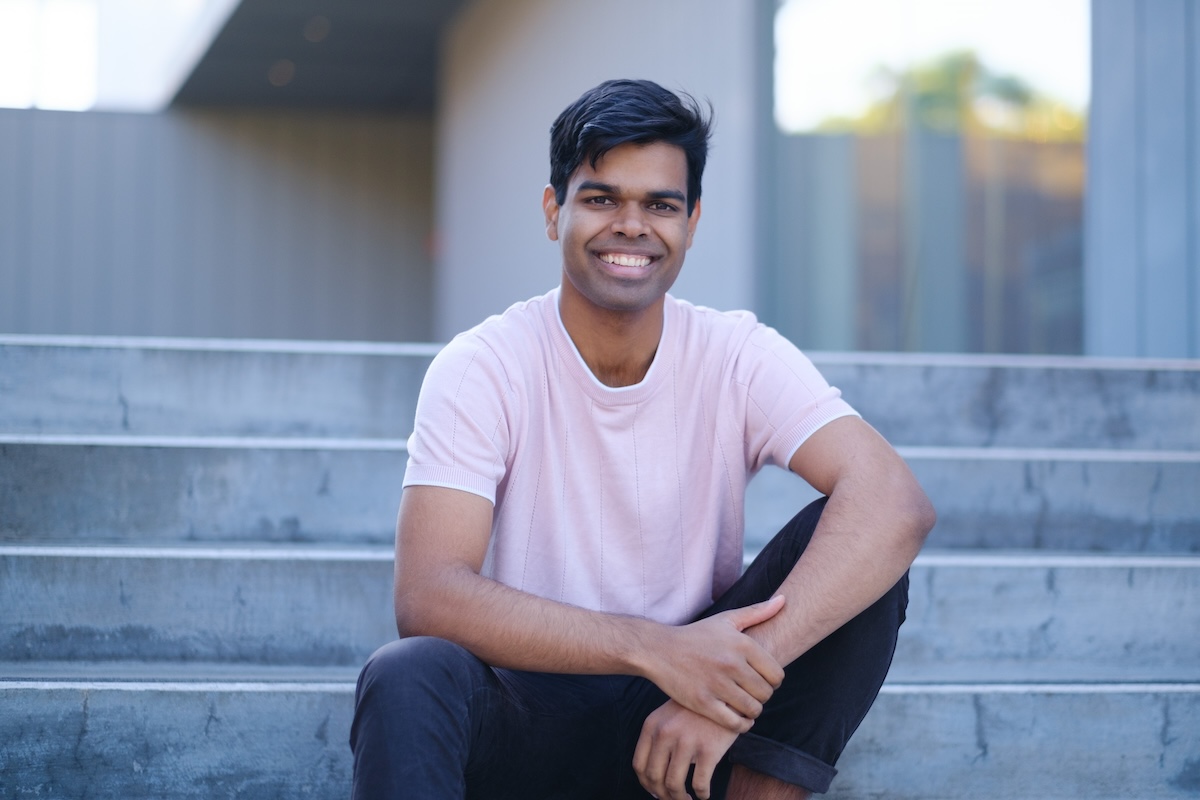NZ Harvard grad Soumil Singh develops world first AI to automate social media video creation

Kiwi Harvard graduate Soumil Singh has developed world-first AI that creates images and videos for social media platforms from a user’s basic text description.
The technology, known as Unfaze.ai, is set to be the first of its kind to fully automate the creation of short-form video content using AI – for both individual content creators and brands.
While designed for individual creators and influencers to build their social media following, the AI video-generation tech is also set to reduce barriers faced by thousands of SMEs in accessing social media platforms such as TikTok and YouTube to promote their products organically.
In contrast to traditional content creation processes that require hours of graphic design and post-production from teams of professionals, the new AI will allow users to generate images and short-form videos, including voiceovers, using only basic text prompts to describe their content idea – within minutes.
While the current technology version can produce entertaining content for individual creators, a new suite of features set to launch in the coming weeks will make it the first platform to allow a company to create images of their products with multiple backgrounds using generative AI models and then convert these images into the creation of short-form video content.
The company has received multi-million dollar support from US and NZ investment funds – including Y Combinator, the world’s top accelerator and the first investor in Airbnb and Dropbox.
Following a surge in the development of text and image generators, AI-generated video is now seen as the next frontier – attracting billions of dollars in funding from investors. While video creation tools from OpenAI and Google are not yet available, start-ups like Unfaze are moving rapidly to secure market share before global tech giants release their own business and individual-focused offerings.
Industry experts say the market potential for the technology is significant, particularly within the fastest-growing social media platforms such as TikTok which has 1.1 billion monthly active users globally and is available in over 160 countries. The app’s audience is expected to grow by over 64% to surpass 1.8 billion users by the end of 2024.
While once seen as a platform for only dance trends and viral videos, research shows around 54% of businesses use TikTok to promote their brand, with an average of nine posts per month – however 25% say constantly creating content, appealing to a larger consumer base, and creating high-quality videos is a barrier and, many businesses report struggling to boost engagement rates.
Soumil Singh, founder of Unfaze.ai, who left New Zealand seven years ago to study applied mathematics and computer science at Harvard University in Boston before launching a Silicon Valley start-up, says while the engagement rate on TikTok is 93% higher than other social media networks, the need to create volumes of fresh content is resource intensive and cost prohibitive – creating an access barrier for many Kiwi content creators, influencers and SMEs.
He says while the production of a single video could take an agency weeks to complete and cost thousands of dollars, recent advances in machine learning have now made it possible for content creators to simply ‘instruct’ the artificial intelligence to produce video content to meet their specifications.
Says Singh: “What we know about these social media and video platforms is that they rely heavily on high volumes of fresh content for users to maintain visibility and engagement.
“With traditional tools, you have to think of an idea, write a script, collate all the images and video snippets and then decide how to bring them together. Alternatively, now you could just upload your product image, tell AI your idea press a button and have it generate one or multiple versions of the video and even automatically schedule and post them to your social media accounts.
“With apps like TikTok, the model content allows businesses to post content that can organically expand its reach – which means that there is no additional cost each time someone views or clicks on the video.
“Under this model, the cost of a campaign is centered in the production of each piece of content. To produce an effective result requires multiple different versions to be tested and even then the video can’t be reused indefinitely.
“This is one of the reasons many companies may not even have a short-form video content strategy and rely on paid media ad platforms.
“However when we use AI to remove this constraint, it allows even very small Kiwi businesses with low budgets to drive organic traffic efficiently and potentially expose themselves to a global audience of millions of viewers.
“We believe this technology has the potential to be transformative for thousands of SMEs around the world – providing them almost unlimited access to video content which they can use to market their products,” he says.
Singh says they have now raised $5.5 million and are using the funds to further the development of the technology and support the video creation software launch in July 2024 on their existing online platform.
He says this research will bring them closer to the production of AI-generated videos that are indistinguishable from manually created content: “This is really the Holy Grail of video creation and with the speed at which AI is evolving, we expect to reach this point within a matter of months, not years.”
New York based Unfaze.ai has appointed New Zealand public relations agency Impact PR to support the launch of the new platform.
